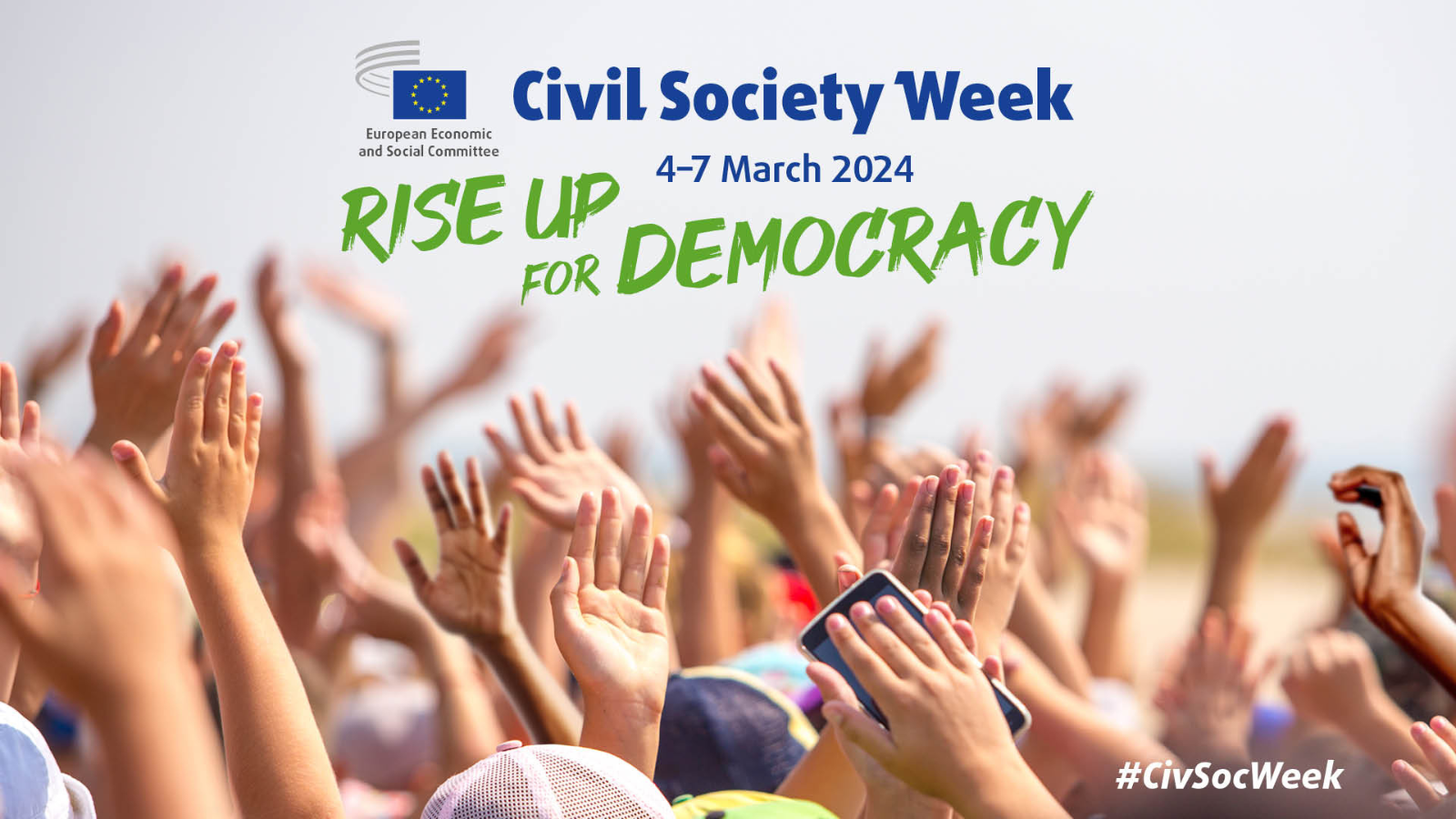
From 4th to 7th March 2024, the European Economic and Social Committee (EESC) hosted its first Civil Society Week, a pivotal gathering that brought together over 800 representatives from civil society organisations and youth groups. The primary agenda? To delve into pressing topics surrounding the upcoming European elections in June, to discuss the future of the European Union, and, ultimately, to #RiseUpForDemocracy.
During this significant week, ECAS proudly served as a Civil Society partner, taking the lead in discussions on e-democracy participatory initiatives, digital transformation, European Citizens’ Initiative (ECI) support infrastructures, and strategies for countering disinformation.
Read on for the outcomes and insights garnered from workshops led by ECAS…
The “Digital Transformation That Leaves No One Behind” workshop started with the presentation of ECAS’s Digital Inclusion Guidelines for EU policymakers across 5 key domains: Digital education, Digital Democracy, Digital rights, Digital safeguards and Digital economy.
The panel discussion that followed allowed experts to give different points of views on the topic: EVBB focused on the transformative power of digital education and active participation, Philea and TechSoup shared resources and approaches that can increase CSOs resilience and efficiency in serving the public good and finally, the representative of the EESC highlighted that a key part of digital transformation is Artificial Intelligence (AI), and more specifically the “General purpose AI (GPAI)“, which forms the basis for many new and transformative technology applications.
ECAS together with EEB chaired also the workshop “EP elections toolkit for civil society: How to successfully tackle Disinformation and Citizenwashing”
During the Workshop, we presented our work over the past two years (2022-2023) in Central and Eastern Europe, where it supported the building of civil society coalitions against disinformation. More specifically, we showcased our Framework for CSOs Against Disinformation, containing 6 key guiding principles on building successful CSO coalitions, prepared on the basis of its work in Hungary, Slovenia, Bulgaria, Poland and Czechia. The Framework is part of ECAS’ ‘First Aid Democracy Toolboxes’, aimed at three distinct target groups: EU citizens, CSOs and EU policy makers, which will be put forward in advance of the EU elections.
Guest panelists Renate Schroeder, Director of the European Journalists’ Federation, and John Comer, Rapporteur for the EESC opinion “Safeguarding Democracy Against Disinformation” highlighted several practical steps to tackle the dangers of disinformation, such as more public funding for fact-checked journalism, improved CSOs consultations infrastructure and building the resilience of EU citizens through education.
EEB presented the concept on citizenwashing (false/misleading claims of democratic decision-making) as a form of disinformation and a threat to democracy. Speakers Seamus Boland, President of the EESC Civil Society Organisations’ Group and Ruby Silk, Communications Officer at EEB presented a few relevant case studies, underlining the need to ensure public participation processes do not fall into the trap of misrepresentation, based on the good practices and lessons learned from these examples.